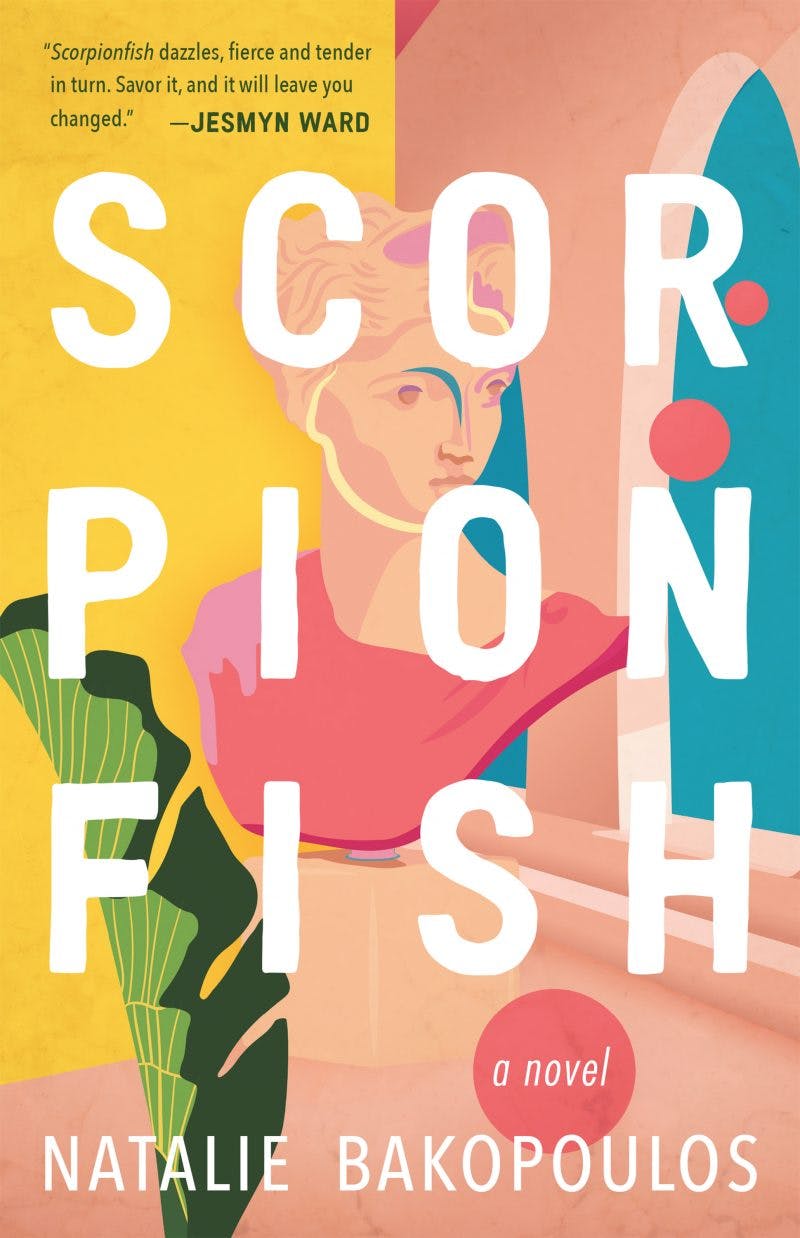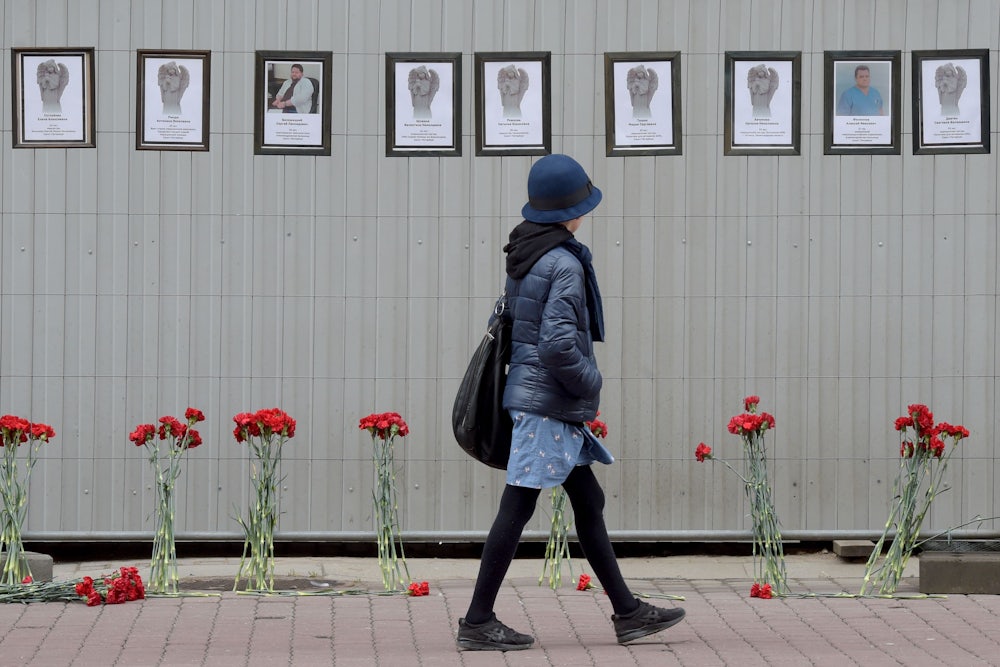In April, New York magazine’s Molly Young wrote that the ravages of the pandemic had fostered a taste for a milder kind of book. “Now is the time for books that go down like rice pudding,” she said. “Now is the time for sweet, easily digested, soul-swaddling tomes.”
I have had the opposite impulse. During the pandemic, I’ve found literature that deals with difficult subjects—and with grief in particular—to be some of the only material I can focus on. This inclination, though mysterious even to me, may be related to what David Kessler, a grief expert, has described as our communal response to the coronavirus. “We’re grieving,” Kessler told the Harvard Business Review in March. “Collectively. We are not used to this kind of collective grief in the air.”
If grief, like the virus itself, permeates the very medium through which we live and breathe, then literature is a way of concentrating it, reducing it to the size of a book you can hold in your hands. And in bracketing books about loss together on a mental bookshelf, individual experiences can become a mosaic, transforming grief into a kind of solidarity.
Two new books—the novel Scorpionfish by Natalie Bakopoulos and the poetry collection Obit by Victoria Chang—give us a sense of the shape of bereavement. Reading them offers the “soul-swaddling” feeling of sharing intensely personal experiences with others—which can be its own strange type of sweetness.
Scorpionfish, Bakopoulos’s second novel, is told from the split perspective of two neighbors living in Athens: Mira, an anthropology professor, and a sailor known only as The Captain.

Both characters are dealing with loss. Mira’s parents have recently died, and her longtime boyfriend has left her for another woman. The Captain is separating from his wife and worries that his own father might be dying. These newfound absences are echoed in the backdrop of Athens itself, suffering through economic losses and austerity measures. “I noticed all the boarded-up buildings,” Mira thinks, “the closed businesses.” The city, like the book’s protagonists, feels haunted.
In the apartment her parents left behind, Mira takes stock of their belongings. “Excavating these remnants of the past, I felt neither nostalgia nor a particular connection,” she says. “I felt newly empty.” The tone of the book, too, is emptied, the prose scraped clean of adornment. Mira in no way resembles the spiny, venomous scorpionfish of the title; her voice lies flat, as if attempting to avoid detection. Throughout the novel, secondary characters frequently leave Athens, so that all that remains are the lean voices of the two protagonists.
The twinned narration largely functions to further the book’s doubling theme: two characters with ties to two countries (both have spent significant time in America and Greece) on two balconies speaking two languages, living in a world cleaved into the real and the shadowy.
Walking around Athens, Mira notes that “light shimmered through the olive trees like an invitation to another world.” This simile becomes increasingly literal as the story progresses. The novel is thick with the memory of missing people, which creates a kind of ghost landscape alongside the physical terrain of the city. When Mira meets The Captain on the roof of their apartment building, she’s assailed with a scene from the past: “My mother is on that roof with us, in that yellow dress: drunk and singing.”
As Mira bends over to spit out toothpaste, she can “just about feel” her mother’s eyes on the back of her neck. When she returns to shore after a swim, a woman asks her whether there was another person out there with her. No, Mira had gone alone. Maybe the woman’s eyesight was hindered by distance. Or perhaps the ghost map and its physical counterpart had merged, very briefly.
Even as Mira stumbles around in a fugue of grief, seeing her mother where she can’t be, the novel still allows for close, quiet moments of happiness and human connection. In Athens, she revels in “that fervent, liberating joy I felt nowhere else in the world.” She spends her evenings talking to The Captain on their balconies, their stories—and lives—intertwining “like a double helix.” The book offers these two remedies as solutions against bereavement and loneliness: people and the city they make up.
Whereas Scorpionfish shows how grief threads itself through daily life, Victoria Chang’s Obit demonstrates how grief swallows everything—time and language, in particular.
The book is a collection of prose poems, modeled after narrow newspaper obituaries, though they also invoke the rectangular solidity of gravestones. Some chronicle the deaths of concepts, such as ambition and friendship, but most revolve around the death of Chang’s mother and the illness of her father, whose brain, due to dementia, “died before him.”
The obituaries are interspersed with tankas and one sonnet sequence with emphasized spacing, which looks like it’s been over-proofed and developed little air pockets. Within the rigid perimeters of these poems, Chang discusses the way grief robs us of form. “To acknowledge death is to acknowledge that we must take another shape,” she writes. In another poem: “Grief is the row of eggs waiting in the cold to lose their shape.”

This idea—that grief initiates a new shaping—speaks to the way time loses its ordinary mold during periods of bereavement. Under grief’s influence, Chang writes, “Time is enlarged, blurry.” Mira, in Scorpionfish, echoes her: “Since my parents had died everything blurred together.” Normal signposts for hours and days are uprooted, obliterated.
Whereas time undergoes fundamental changes, Chang points to how language simply collapses under the weight of this new world. In one of her three obituaries for language, she writes that it “fails us.” In a short piece about her collection, Chang says the poems are “my attempt to see if I could get to the bone of grief, to see if I could describe it.… Once I started trying, I realized how hard it was to explain and how it wasn’t even one thing I was trying to explain.”
Virginia Woolf (whose book The Waves Chang cites as an influence in Obit) advanced a similar theory about illness. “To hinder the description of illness in literature, there is the poverty of the language,” she writes. Language, like time, loses its glue, its potency, in the face of the vast meaninglessness that grief or illness can engender.
But for all the failures of language, Chang’s employment of it is beautiful and resonant: “Depression is a glove over the heart,” she writes. “Depression is an image of a glove over an image of the heart.” Obit, independent of whether Chang feels she has “successfully” described how it feels to grieve, ultimately provides nourishment, in a similar vein to what’s suggested in the poetry of Emily Berry:
When someone leaves you,
they flow out of you like milk,
and if you allow it, you can feed people.
